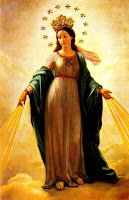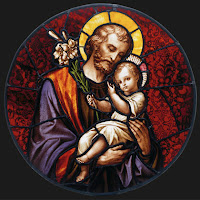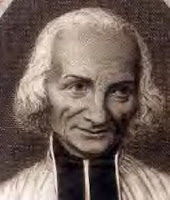
When the High Priest questioned him about his doctrines, the Lord Jesus responded: “I have spoken publicly in the world. I have always taught in a synagogue or in the temple area where all the Jews gather, and in secret I have said nothing.” In his Sacred Humanity, he was true to himself as the Word of the Father. The Holy Father wrote in his Apostolic Exhortation, Verbum Domini: “Reading the Gospel accounts, we see how Jesus’ own humanity appears in all its uniqueness precisely with regard to the word of God. In his perfect humanity he does the will of the Father at all times; Jesus hears his voice and obeys it with his entire being; he knows the Father and he keeps his word (cf. Jn 8:55); he speaks to us of what the Father has told him (cf. Jn 12:50); I have given them the words which you gave me” (Jn 17:8). Jesus thus shows that he is the divine Logos which is given to us, but at the same time the new Adam, the true man, who unfailingly does not his own will but that of the Father. He “increased in wisdom and in stature, and in favour with God and man” (Lk 2:52). In a perfect way, he hears, embodies and communicates to us the word of God (cf. Lk 5:1).”
We have just meditated on the 7 last words of Jesus. I am really amazed at the fact that even as he hung upon the Cross, Jesus continued to preach to the world. The Cross was his pulpit and the 7 last words were probably his greatest sermon. Towards the end, he declared: It is finished! “And bowing his head, he gave up his Spirit.” The Word says no more! “…here we find ourselves before the “word of the cross” (1 Cor 1:18). The word is muted; it becomes mortal silence, for it has “spoken” exhaustively, holding back nothing of what it had to tell us. The Fathers of the Church, in pondering this mystery, attributed to the Mother of God this touching phrase: “Wordless is the Word of the Father, who made every creature which speaks, lifeless are the eyes of the one at whose word and whose nod all living things move”. Here that “greater” love, the love which gives its life for its friends (cf. Jn 15:13), is truly shared with us.”
“The Word is muted, it becomes mortal silence…” We stand before this mortal silence…before this powerful “word of the Cross.” We are used to say: Dead men tell no tales. Such cannot be said about the Lord because if he had taught us so much while he preached along the Sea of Galilee, he taught us more as he hung lifeless on the Cross. So many have found strength and solace simply by looking at that silent and lifeless God on the Cross. “They shall look upon him whom they have pierced” Looking at him, what do we see? In him, we see our iniquities and the sufferings we deserve on account of them. In him we see the gravity of our offences and the consequences of our sins: “For it was our infirmities that he bore, our sufferings that he endured, while we thought of him as stricken, as one smitten by God and afflicted. But he was pierced for our offences, crushed by our sins; upon him was the chastisement that makes us whole, by his stripes we were healed. We had all gone astray like sheep, each following his own way, but the Lord laid upon him the guilt of us all.”
But not only the ugliness of sin do we see as we look at him. Ironically, in his hideous appearance, we behold the countenance of his love. The love that we see in him is one that exhausts itself, one that bears sufferings for the sins of others, one that forgives, one that triumphs over evil. Yes, it is a love that triumphs over evil. Suffering does not have the last say in him. And neither does death. “The Cross represents the humiliations of Christ; but since the day when Jesus was nailed to it, it occupies a place of honor in our churches. Instrument of our salvation, the cross becomes for Christ the price of his glory: ’Did not the Christ have to suffer these things before entering into His glory?’ (Lk. 24:26)” (Bl. Columba Marmion, Christ In His Mysteries, 306.) Christ’s passion is the measure of his glory. “The glory of Jesus is infinite because He, being God, has in His Passion gone to the utmost degree of suffering and humiliation. And it is because He has so deeply abased Himself that God has given Him such glory: ‘Therefore God the Father has exalted Him’ (Phil. 2:9).” (Marmion, 304.)
Powerful in life, Jesus is even more powerful in death – for in dying, Jesus restores to us what the devil has destroyed: the likeness of God in the human soul. “So marred was his look beyond human semblance” and he allowed it to be so in order to restore to us the beautiful likeness of God. The baptised soul, the saint in heaven, is the wonderful masterpiece of Him who hangs lifeless upon the Cross.
“Because of his afflictions, he shall see the light in fullness of days, through his sufferings, my servant shall justify many, and their guilt he shall bear. Therefore, I shall give him his portion among the great, and he shall divide the spoils with the mighty because he surrendered himself to death and was counted among the wicked; and he shall take away the sins of many, and win pardon for their offenses.”





















